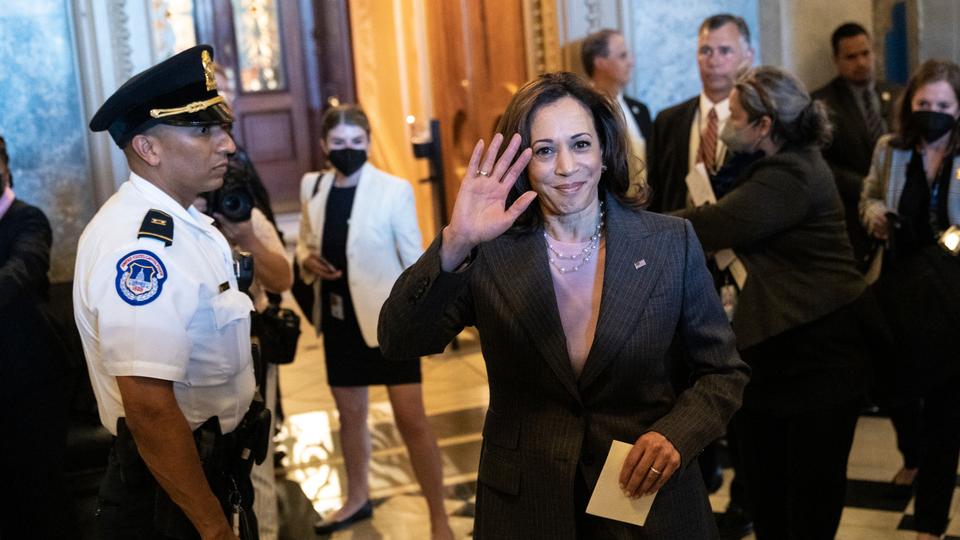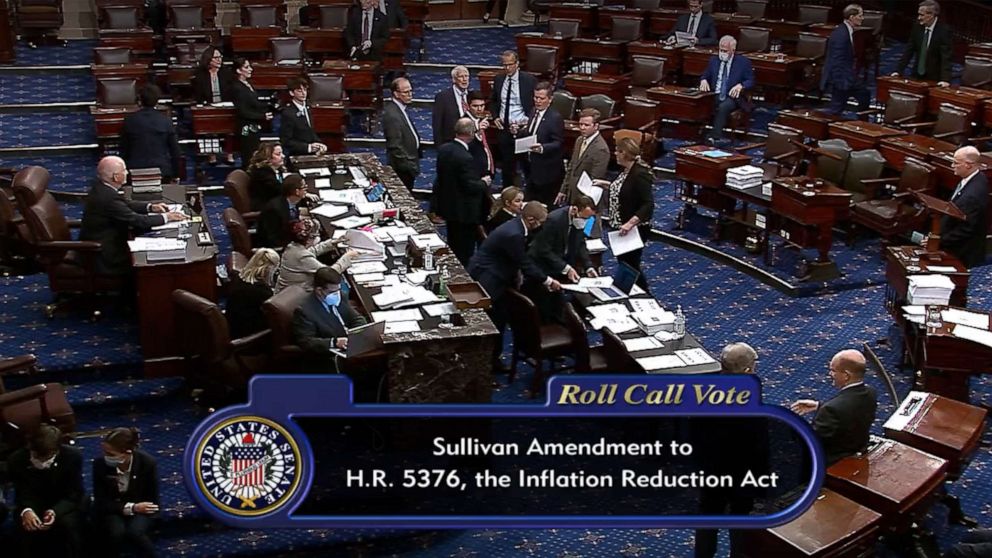Democratic-led House of Representatives approves $430 billion bill that is seen as biggest climate package in US history, delivering a major legislative victory for President Biden ahead of November 8 midterm elections.
US lawmakers have adopted President Joe Biden's sprawling climate, tax and health care plan –– a major win for the veteran Democrat that includes the biggest ever American investment in the battle against global warming.
The House of Representatives on Friday approved the measure by a 220-207 vote along party lines following its adoption in the Senate on Sunday by a razor-thin margin, with Vice President Kamala Harris casting the tie-breaking vote.
The legislation to fight the climate crisis and lower prescription drug prices aim to cut domestic greenhouse gas emissions.
It will also allow Medicare to negotiate lower drug prices for the elderly and ensure that corporations and the wealthy pay the taxes they owe.
Democrats say it will help combat inflation by reducing the federal deficit.
Democrats hope the legislation will help them at the polls in November, when voters decide the balance of power in Congress ahead of the 2024 presidential election.
Republicans are favoured to win a majority in the House and could also take control of the Senate.
Biden quickly hailed the adoption of his plan, which includes a $370 billion investment aimed at bringing about a 40 percent drop in greenhouse gas emissions by 2030.
"Today, the American people won. Special interests lost," the president tweeted in the minutes after the vote.
Republicans say 'it will kill jobs'
The bill's main revenue source is a 15 percent corporate minimum tax aimed at stopping large, profitable companies from gaming the Internal Revenue Service code to slash their tax bills to zero, which has led to mixed reactions from business groups to the legislation.
Republicans oppose the legislation, warning it will kill jobs by raising corporate tax bills, further fuel inflation with government spending and inhibit the development of new drugs.
"Democrats more than any other majority in history are addicted to spending other people's money, regardless of what we as a country can afford," House Republican leader Kevin McCarthy said in a floor speech.
But the bill does not leave the US fossil fuels industry out in the cold.
Some provisions allow the federal government to authorise new wind and solar energy developments on federal land only when it is also auctioning rights to drill for oil and natural gas.
The fossil fuel protections disappointed progressives but posed no barrier to Democratic support.
About half of Americans support the climate and drug pricing legislation, including 69 percent of Democrats and 34 percent of Republicans, according to a Reuters news agency/Ipsos poll conducted on August 3 and 4.
Source: TRTWorld and agencies
Source https://www.globalcourant.com/us-lawmakers-pass-massive-climate-health-bill-in-big-win-for-biden/?feed_id=10160&_unique_id=62f6e3322d132





